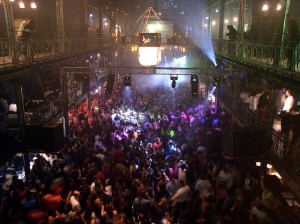Letter From Argentina: Does the Government Pay Your Nightclub Cover Charge?
A reader named Gustav, a.k.a. the Modern Nomad (a nice blog, by the way) writes to say:
Hi! I’ve just left Buenos Aires after a five-month long nomadic visit there. Reflecting on my time there, I remembered something an Argentine friend told me, and I think you might like the economic spirit behind it.
Gustav is right. I do like the economic spirit behind the story he tells, and I think you will too:
In short, this is a government scheme created to discourage driving under the influence. When you and your friends drive to a disco, you enter the club as normal and pay your entry. But when you leave, the group walks up to the cashier and presents the designated driver, sober and fit for driving. Everyone in the group gets their entry fee back at that point! The club then gets the lost money back from the government who, I presume, find it cheaper to pay the entry fee for clubbers in the company of designated drivers than have them in the hospitals. To me, this is a beautiful economic point of view where the practical reality and cost of things is more important than not to be seen ‘supporting clubbers.’
Gustav writes further that “I’d love to know if this is true, as I heard it from a friend.” Yes, it would be good to know if it were true. And if so, it would also be good to know if it were a) generally effective; and/or b) marked by unintended consequences, and of what nature.
For instance, I could imagine an enterprising person might spend the evening working the nightclub as a professional designated driver. He could cut deals with multiple departing groups, offering to pretend to be their driver in return for a generous cut of their cover-charge refund. He might have to disguise himself a bit to repeatedly slip past the club’s exit personnel, and of course he might have to pay the cover charge himself each time to re-enter. Still, I could see him making the economics work. In which case the group that he pretended to drive home would in fact be driving itself home, quite likely not in a sober condition. In which case the government has subsidized a drunk-driving event rather than stopped one.
Am I being too cynical in immediately thinking of how this smart-seeming government intervention might be gamed to the detriment of the public?
And, more important, can anyone who’s familiar with this Argentine practice fill in some factual details?


Comments